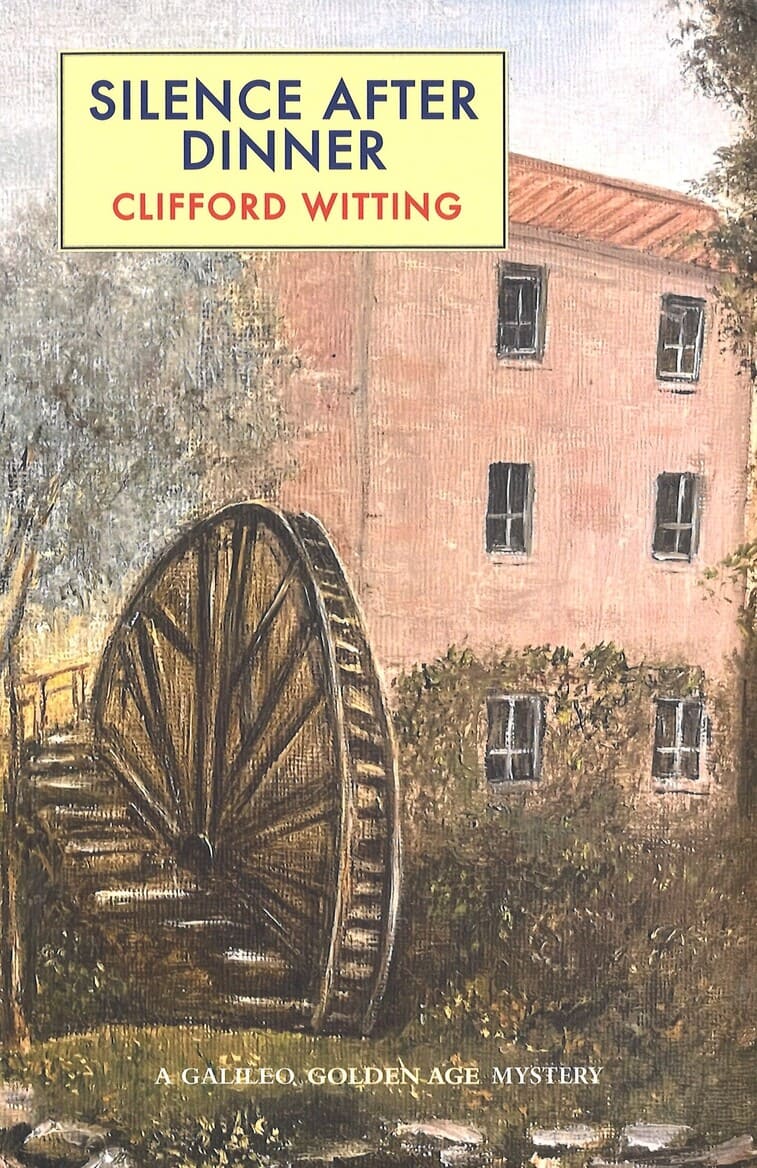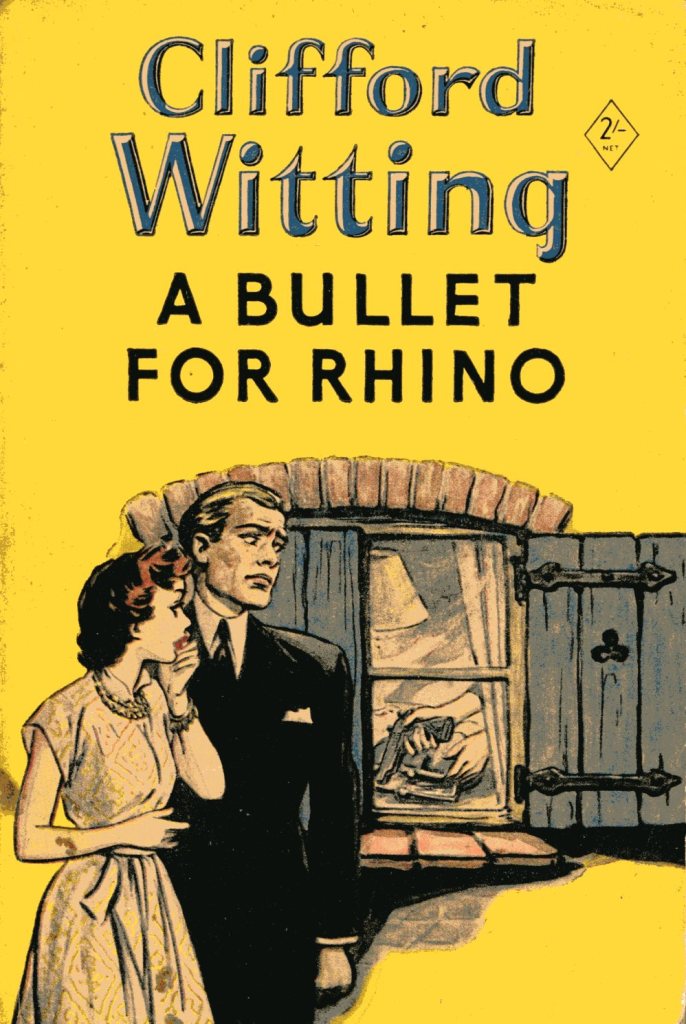![]()
![]()
![]()
![]()
![]()
With an intriguing title taken from Oscar Wilde’s The Picture of Dorian Gray (1890) (“Murder is always a mistake. One should never do anything that one cannot talk about after dinner.”), Silence After Dinner (1953) is the eleventh Clifford Witting novel republished by Galileo Publishers. And since they were kind enough to send me a review copy, I can tell you about it fairly close to its release for a change. Opening with a startling, anonymous diary entry set in late-Communist Revolution China, we jump forward four years to the more bucolic South Downs where various people all seem to have spent time in that country and so might be the person responsible for the acts relayed in that opening. So, whodunnit?
Galileo Publishers
#1182: Midsummer Murder (1956) by Cecil M. Wills
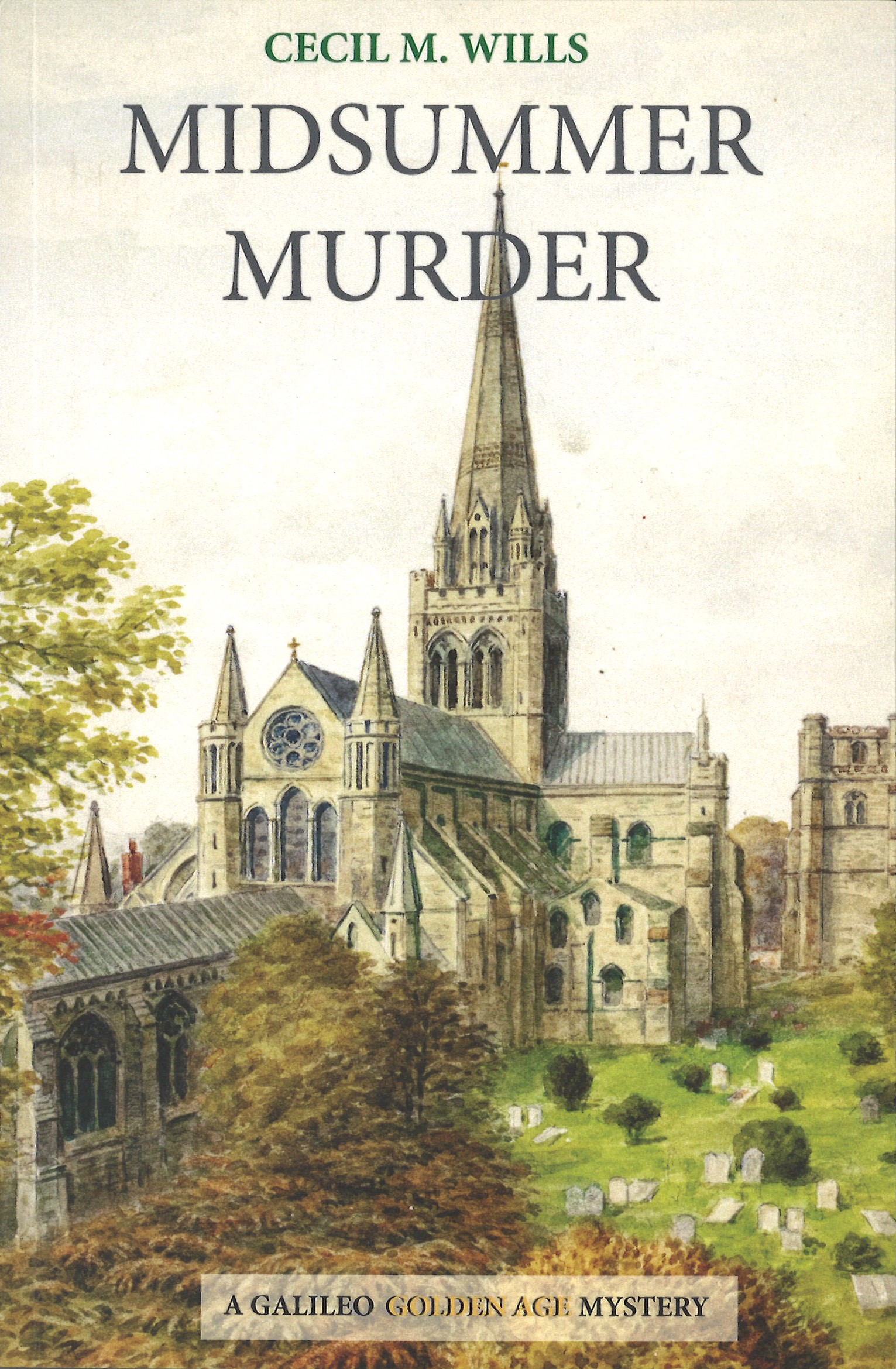
![]()
![]()
![]()
![]()
![]()
I’d previously read just one book by Cecil M. Wills, the Ramble House edition of Fatal Accident (1936), about which I remember nothing — though the fact that I didn’t review it might be telling. So when Galileo Publishers sent me an advance copy of Midsummer Murder (1956), I was intrigued to see how it stacked up: one (possibly) poor book does not a bad author make, and Galileo have shown some good taste in their unusual selections to date. And, well, I don’t know quite what to make of this, to be honest — Wills writes charmingly, and the enjoyable plot is communicated in easily-digested prose that flies by…but, equally, there’s a massive flaw at the core of this which can’t have passed by everyone else who’s read it…right?
#1146: Murder in Blue (1937) by Clifford Witting

![]()
![]()
![]()
![]()
![]()
Maybe it’s the changing of the seasons, but I am really struggling to maintain interest in a lot of what I’m reading at present. Latest victim is Murder in Blue (1937), the debut novel of Clifford Witting, whose first half flew by in a whirlwind of delightful wit and intriguing possibilities…only for me to have to drag my way through the final 60 pages to a conclusion I’d lost interest in long before. And yet this sounds like exactly my sort of thing: plenty of clever false leads, lots of intelligent speculation, an apparently simple murder made devilishly complex by Witting’s undeniable intelligence of design (c.f. Let X be the Murderer (1947)). So, wherefore the capitulation? Let’s investigate…
#1085: Let X be the Murderer (1947) by Clifford Witting

![]()
![]()
![]()
![]()
![]()
The recent Bodies from the Library conference will have brought Clifford Witting to everyone’s mind, so the time seems ripe to look at Let X be the Murderer (1947), the latest Witting title to be reprinted by Galileo Publishers. When Sir Victor Warringham phones the police with a story of luminous, ghostly hands trying to strangle him in the night, Detective Inspector Charlton must contend with the various facets of Warringham’s household trying to prevent him from investigating. When murder is committed in the house, however, the denizens cannot block the investigation, despite a few keeping secrets that they’d rather not have brought to light.
#1046: Dancing with Death (1947) by Joan Coggin
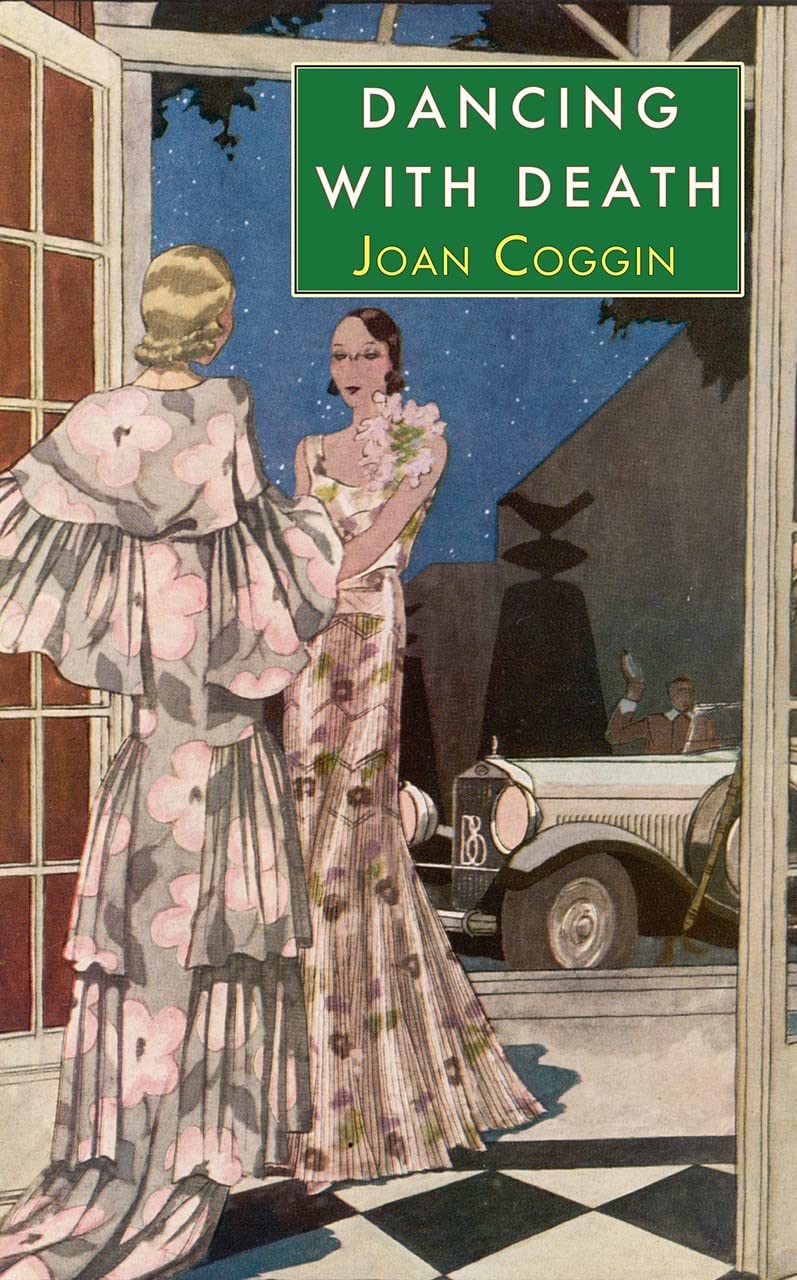
![]()
![]()
![]()
![]()
![]()
As someone who has recently found more joy in certain books upon rereading them, I appreciate the many ways context can affect how we respond to a book when we encounter it. And so when I say that I read Dancing with Death (1947) by Joan Coggin at the right time, I suppose it is to acknowledge that I was fortunate enough to be in the mood to appreciate its many subtle touches which might, at any other time, have passed me be entirely. It’s very much not my usual kind of thing, but a break from the norm is often encouraged and, in this case, turned out very well indeed. One is left to rue the fact that Coggin wrote only four books, that those books are hard to find, and that she spoils the solutions of two of them in the first chapter here.
#1037: Catt Out of the Bag (1939) by Clifford Witting
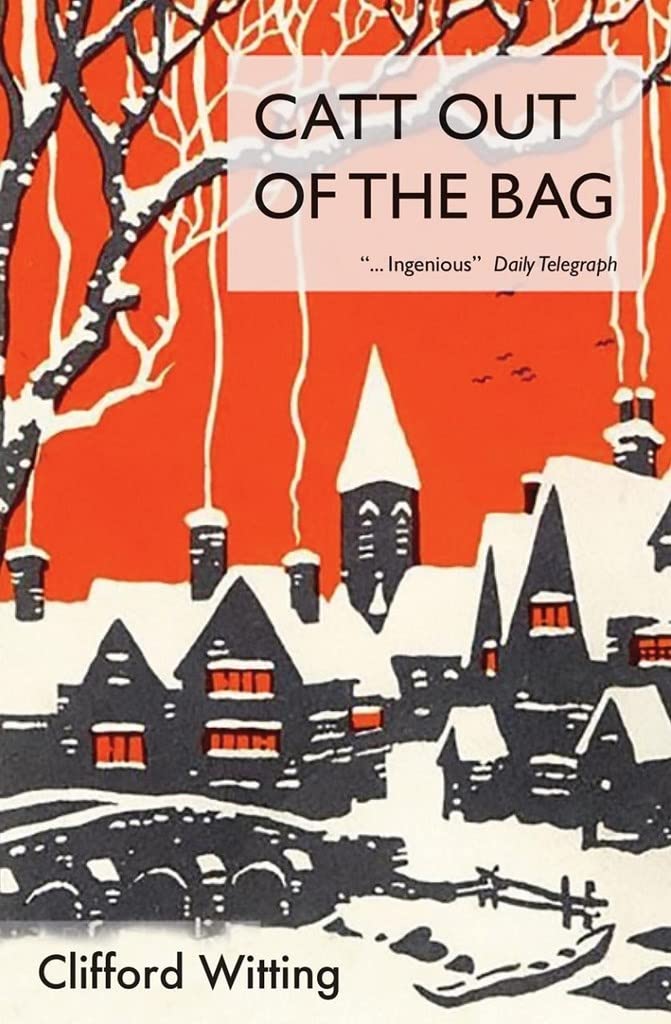
![]()
![]()
![]()
![]()
![]()
On the evening of 21st December, a group of carollers — or “waits”, a turn of phrase that was new to me — organised by the formidable Mrs. de Frayne are stopping and singing at prime spots in the small town of Paulsfield while collectors go door-to-door to raise money for the local hospital. Already struggling to keep to their strict timetable, things are frustrated further when Mr. Vavasour, one of the collectors, does not return from his allocated stretch of road, and so the party moves on without him, assuming that he has gone home. And later that evening, Mrs. Vavasour phones the De Fraynes to enquire after her husband, worried because he has not yet come home from the carolling…
#1025: Villainy at Vespers (1949) by Joan Cockin

![]()
![]()
![]()
![]()
![]()
Man, I’m conflicted on this one. For sheer giddy authorial overlapping of people and events, Villainy at Vespers (1949) by Joan Cockin is an absolute delight, giving us all manner of coming and going in a slightly down-at-heel Cornish village as plenty of people find themselves with plenty to hide in the wake of an unknown man being found naked and apparently ritually slaughtered on the altar of the local church. Cockin, nom de plume of Edith Macintosh, is clearly a woman with a superb wit and a keen eye for detail, but what she really needs is a hard-as-nails editor to bring her events into sharper focus, because there’s a huge amount of charm here but it takes some getting to.
#908: Mining Mount TBR – A Bullet for Rhino (1950) by Clifford Witting
“I have a profound admiration for Rhino…he’s indeed a credit to Mereworth — an example to us all. The school has turned out some fine men in its time, but none finer and with a more distinguished record than Rhino Garstang. No wonder the boys look up to him!”
Continue reading#754: Mining Mount TBR – The King and the Corpse (1949) by Max Murray
This month of Tuesday posts picking through the more neglected corners of my TBR has now become the GAD equivalent of a bride’s wedding outfit: something dull, something shitty, something loopy, and finally something witty.
Continue reading